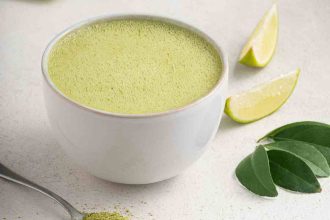There was a time when digestion was considered a simple matter of breaking down food and absorbing nutrients. The stomach and intestines were seen as mechanical systems, no different than a kitchen blender and pipes. Today, that view feels outdated. Science has revealed that the gut is not only central to physical health but also deeply connected to immunity, mood, energy, and even brain function. At the heart of this discovery is the microbiome, the vast community of bacteria, fungi, and other microorganisms that live inside the digestive tract. Far from being passive passengers, these microscopic residents play an active role in nearly every system of the body.
The conversation around wellness is shifting. People are no longer satisfied with calorie counts and workout plans alone. They want to know how their inner ecosystem influences how they feel and how they age. Gut health is the missing link in many modern health puzzles. It may hold the answers to why one person thrives on a certain diet while another struggles, why some people are more resilient to stress, or why illnesses seem to appear without warning.
Understanding the Microbiome
The human gut contains trillions of microorganisms, outnumbering human cells by a wide margin. These microbes weigh only a few pounds combined, but their influence is massive. They help break down complex carbohydrates, produce vitamins, regulate inflammation, and train the immune system. Each person has a unique microbiome, shaped by birth, environment, diet, medication use, and lifestyle. This uniqueness explains why no single nutrition plan or supplement works for everyone.
What makes the microbiome fascinating is its adaptability. It changes in response to what we eat, how we live, and even how much we sleep. A diet rich in fiber, diverse plants, and fermented foods can foster a flourishing microbial community. On the other hand, a diet dominated by processed foods, sugar, and artificial additives can diminish diversity and allow harmful bacteria to grow. A healthy gut is not sterile but balanced, where beneficial microbes outcompete those that cause harm.
The Gut-Brain Connection
One of the most surprising discoveries in recent decades is the communication line between the gut and the brain. This relationship is often called the gut-brain axis. Nerves, hormones, and microbial byproducts create a constant dialogue between the digestive system and the central nervous system. For example, about ninety percent of the body’s serotonin, a neurotransmitter tied to mood, is produced in the gut. This means that the state of your stomach can influence how happy, calm, or anxious you feel.
Emerging studies show links between gut imbalances and mental health conditions such as anxiety and depression. While the research is ongoing, the evidence suggests that nurturing a healthy microbiome may support emotional wellbeing just as much as therapy, exercise, or medication. The idea that probiotics or a balanced diet could help manage mood disorders is a powerful reminder that the gut is far more than a digestive tube.
Gut Health and Immunity
The immune system and the gut are inseparable. Nearly seventy percent of immune cells are located in the digestive tract. They act like gatekeepers, learning to distinguish between friendly microbes, harmful invaders, and harmless substances such as food. When the microbiome is healthy, the immune system stays balanced and efficient. But when the gut environment is disturbed, immune function can become confused, leading to chronic inflammation, allergies, or autoimmune conditions.
Consider how antibiotics, while lifesaving, can wipe out beneficial bacteria alongside harmful ones. After such treatments, people often experience digestive upset or vulnerability to infections. Rebuilding the microbiome with probiotics, prebiotics, and nutrient-dense foods becomes essential. The connection between gut health and immunity also explains why a diverse diet with plenty of plants is recommended. Diversity in food encourages diversity in microbes, which strengthens immune resilience.
Digestion and Energy
The gut is also a key player in how energized or fatigued you feel. Efficient digestion means nutrients are extracted properly and made available to the body. A sluggish or imbalanced gut, on the other hand, can leave you feeling tired even after a full meal. Gas, bloating, and irregularity are signs that the digestive system is under stress. Long term, poor digestion can lead to nutrient deficiencies that impact skin, hair, focus, and overall vitality.
Scientists now understand that certain microbes help produce short-chain fatty acids, compounds that fuel the cells lining the gut wall and play roles in metabolism and energy regulation. When these beneficial bacteria are lacking, energy levels may drop. Once again, what you eat shapes these outcomes. Diets high in processed foods starve good microbes, while diets rich in fiber and variety encourage their growth.
The Role of Probiotics and Prebiotics
In the wellness market, the terms probiotics and prebiotics are everywhere, but they deserve careful explanation. Probiotics are live beneficial bacteria that can be consumed through foods like yogurt, kefir, sauerkraut, kimchi, or supplements. Their role is to restore balance, especially after disruption from antibiotics or poor diet. Prebiotics, on the other hand, are fibers that feed beneficial bacteria. Foods like onions, garlic, bananas, oats, and asparagus act as fuel for the microbiome. Without prebiotics, probiotics have a harder time surviving and thriving.
It is not about swallowing endless pills or powders but about creating an environment where beneficial microbes can flourish. Regularly incorporating probiotic foods alongside prebiotic-rich plants creates a synergy that nurtures long-term gut health.
Stress and the Stomach
Stress does not just affect the mind; it shows up in the stomach too. The familiar churn of anxiety before a presentation or the loss of appetite during grief is proof of the gut-brain axis in action. Chronic stress can disrupt digestion, slow metabolism, and even change the composition of the microbiome. In turn, an imbalanced gut can make stress responses worse, creating a cycle that feeds itself.
This is why holistic stress management strategies are also gut health strategies. Practices like meditation, yoga, deep breathing, and time in nature not only calm the mind but also protect digestion. When you reduce stress, you help restore balance in the gut, which then supports overall wellbeing.
The Path Ahead
The science of the microbiome is still young, and many mysteries remain. Researchers are exploring how specific microbial strains influence weight, mental health, and chronic disease. Clinical trials are testing microbiome-based therapies for conditions ranging from irritable bowel syndrome to Alzheimer’s. While the future may bring personalized probiotic treatments based on genetic or microbial analysis, the basics of gut health are already clear.
Eat a diverse diet rich in whole foods. Limit processed and artificial ingredients. Prioritize rest, movement, and stress reduction. Pay attention to how your body responds to different foods. These are not revolutionary ideas, but they align with the growing evidence that the gut is central to health.
Final Thoughts
Gut health is not a passing wellness fad. It is a foundational aspect of human health that modern science is only beginning to fully understand. The trillions of microbes living in the digestive system influence everything from immunity to mood to energy. By caring for the microbiome through mindful eating, balanced living, and stress reduction, you are not just protecting your stomach but investing in your entire future wellbeing.
The stomach is not just a place where food is digested. It is a command center that speaks to the brain, trains the immune system, and guides how you feel each day. To understand gut health is to understand that wellness begins from within, and the choices made daily are what determine whether your inner ecosystem thrives or struggles.
Featured Image Source: Kateryna / Unsplash









